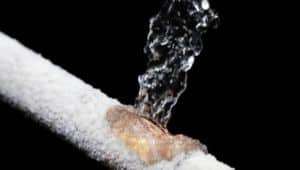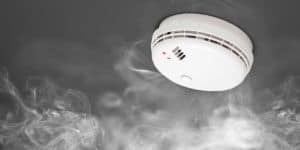Winter safety and security tips
People often regard the winter season as the time when more things will go wrong in and around their homes. Insurance statistics tell us that your home is at much greater risk of a mishap or problem over the winter months. There are many contributing factors, including but not limited to Extreme weather, which strains your home’s systems. Extended periods where your home is unoccupied. Much less daylight for an extended period. And less foot traffic in neighbourhoods.
There are things we can do to increase our defences against security and safety issues. Here are a few tips that may help keep your home and its occupants safer.
1. Enhance your outdoor lighting. New LED flood lights use much less energy and make it more affordable to keep your home’s entrances and driveway lit throughout the night. Illuminating the driveway when you park your car outside reduces the chances of auto theft or B & E.
2. Avoid extended “warm-ups” of your vehicle when unattended. Most cars no longer require much warm-up, even when locked… an idling car is a great temptation to a car thief. Never let your car idle in your garage; the carbon monoxide emitted could be deadly.
4. With your furnace working overtime during cold spells and windows and doors sealed to keep the cold out, your home is more susceptible to higher levels of Carbon Monoxide. CO is a highly poisonous gas produced by burning natural gas, oil, or car exhaust. Have your furnace serviced annually, including inspecting your chimney for cracks. It’s now also the law to have a working Carbon Monoxide detector in your home; it could save your life. You should replace the sensors every eight years.
5. Fire is another serious concern for the winter months. Winter increases the chances of fire significantly. But a few simple changes and precautions will go a long way to reducing the risk of a home fire. Be careful with electric portable space heaters; never use extension cords to power them, and use them for the short term only. You should never use barbecues and propane tanks indoors or in a garage. If you use a wood stove or fireplace, only use seasoned hardwood.
Any flammable objects should be at least a meter from a heat source. You should clean fireplaces and wood stove chimneys at least once a year to prevent chimney fires. For fire detection, ensure you have smoke detectors on every level of your home; it makes sense and is also the law. You can also upgrade your smoke detectors to be monitored. It also scans for high heat in furnace rooms etc.
These five tips will go a long way to reducing the risks to your home. Now how about the home occupants? If the worst-case scenario happens and you’re snowed in, or there is a blackout, you need to have an Emergency kit that you can depend on to keep you safe for a few days. It should include some cash for emergency purchases, food and water to last a few days, a flashlight, extra batteries, a shovel, an alternative heat source like an emergency kerosene space heater, blankets and other essential survival gear, depending on where you live.
- Access Control
- Alarm monitoring
- Alarm Systems
- cannabis
- cannabis retailer
- CCTV Cameras
- Childproof Doors
- Commercial Security
- Construction Security
- Cybersecurity
- Digital Safety
- Door Bell
- Ethernet
- fire
- flood
- garage
- General Category
- Halloween
- holiday
- home
- home automation
- Home Safety
- Home Security
- Home Security System
- In the News
- intercom
- internet
- life insurance
- Locksmith
- Move Ahead
- moving
- MUL-T-LOCK
- natural disasters
- New Years
- Office Security
- Personal Safety
- Pet Protection
- real estate
- Safes
- Safes
- safety
- school
- Security Cameras
- Security Film
- Security Industry News
- Security Systems
- Security Tips
- security window film
- Senior Safety
- shoplifting
- Small Business
- Small Business security
- social media
- social network
- Sports Safety
- summer
- vacation
- Video Alarm Monitoring
- web
- web surfing
- Webdesign
- Window Film
- winter
- Workplace safety









